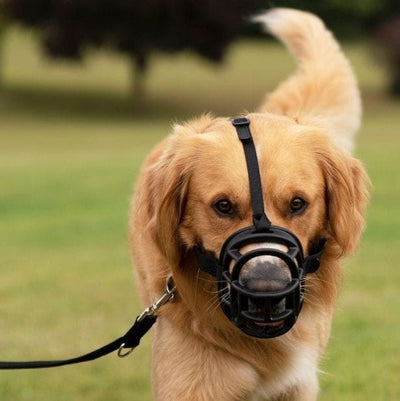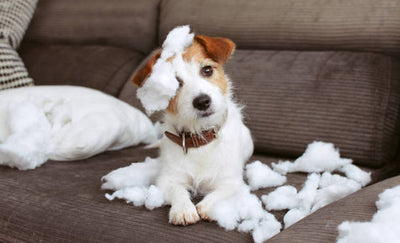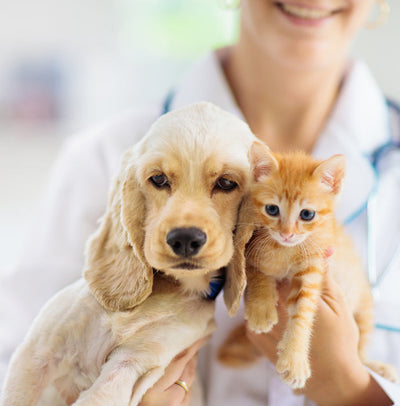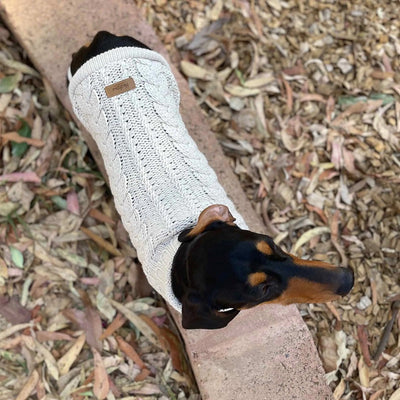
Bringing home a new puppy is an exciting and joyful experience, but it also comes with its own unique set of challenges. As a proud new puppy owner, it's essential to understand the different developmental phases your furry friend will go through and how best to navigate them.
Raising a happy and healthy puppy requires patience, attention, and a willingness to learn. From the first few weeks of life to adolescence and beyond, your puppy will experience significant physical and emotional changes that will impact their behaviour and personality.
As a knowledgeable pet owner, you can help your puppy reach their full potential and ensure a lifetime of love and companionship. In this guide, we'll explore the different developmental phases your puppy will go through and provide tips and advice on how to raise a happy and healthy pup. So, let's dive in and equip ourselves with the knowledge and skills needed to raise a happy and healthy puppy that will bring joy to our lives for years to come!
Understanding the Different Developmental Phases of a Puppy
Puppies go through several developmental phases from birth to adulthood. Each stage has its unique challenges and opportunities for growth and development. As a responsible pet owner, it's crucial to understand these stages and provide the necessary care and attention to help your puppy thrive. Here are the different developmental phases of a puppy:
Neonatal Phase
The neonatal phase is the first two weeks of a puppy's life. During this time, the puppy is entirely dependent on its mother for nutrition and warmth. Puppies are born with their eyes and ears closed and cannot regulate their body temperature. They spend most of their time sleeping and nursing. As a pet owner, your role during this phase is to provide a safe and warm environment for the mother and her puppies. Avoid handling the puppies too much as it can cause stress to the mother, and she may reject them.
Transitional Phase
The transitional phase starts from the second week and lasts until the third week. During this time, the puppy's eyes and ears begin to open, and they start to become more aware of their surroundings. They also start to develop teeth and begin to explore their environment. Puppies start to develop their senses and begin to interact with their littermates and mother. As a pet owner, you can start to introduce gentle handling and socialisation during this phase.
Socialisation Phase
The socialisation phase starts from the fourth week and lasts until the twelfth week. This is a crucial phase in a puppy's development as it is the time when they learn about their environment and how to interact with people and other dogs. Puppies start to play and explore more, and they learn about social hierarchy and communication. It's essential to expose your puppy to different people, animals, and environments during this phase to help them develop into a well-adjusted and confident adult dog.
The Importance of Socialisation and Training
Socialisation and training are essential aspects of raising a happy and healthy puppy. By socialising and training your puppy, you can help them develop the necessary skills and behaviors to thrive in different environments and situations. Here are some tips on socialising and training your puppy:
Socialisation
Socialisation is the process of exposing your puppy to different people, animals, and environments to help them become well-adjusted and confident adult dogs. Socialisation should start early and continue throughout your puppy's life. Here are some tips on socialising your puppy:
- Introduce your puppy to different people, animals, and environments.
- Use positive reinforcement to reward good behaviour.
- Start with short and positive interactions and gradually increase the duration and intensity.
- Expose your puppy to different sounds, smells, and textures.
- Join a puppy class or training program to help your puppy socialise with other dogs and learn basic obedience skills.
Training
Training is the process of teaching your puppy basic obedience skills and behaviours to help them become well-behaved and obedient adult dogs. Training should start early and be consistent and positive. Here are some tips on training your puppy:
- Use positive reinforcement to reward good behavior.
- Be consistent and patient.
- Keep training sessions short and positive.
- Teach basic obedience skills such as sit, stay, come, and leave it.
- Avoid using punishment or physical force.
Nutrition and Exercise for a Healthy Puppy
Nutrition and exercise are essential aspects of raising a healthy and happy puppy. A balanced diet and regular exercise can help your puppy maintain a healthy weight, improve their immune system, and promote healthy growth and development. Here are some tips on nutrition and exercise for your puppy:
Nutrition
A balanced diet is essential for your puppy's health and well-being. Puppies require a diet rich in protein, fat, and essential nutrients to support healthy growth and development. Here are some tips on nutrition for your puppy:
- Choose a high-quality puppy food that is specifically formulated for their nutritional needs.
- Follow the feeding instructions on the food label and adjust as necessary based on your puppy's age, weight, and activity level.
- Avoid feeding your puppy table scraps or human food as it can cause digestive issues and obesity.
- Provide fresh water at all times.
Exercise
Regular exercise is essential for your puppy's health and well-being. Exercise helps to maintain a healthy weight, promote healthy growth and development, and improve their immune system. Here are some tips on exercise for your puppy:
- Provide regular opportunities for your puppy to play and exercise.
- Choose activities that are age-appropriate and safe for your puppy.
- Take your puppy for daily walks to help them burn off excess energy and socialise with other dogs and people.
- Avoid over-exercising your puppy as it can cause fatigue and injury.
Common Health Concerns During Puppyhood
Puppies are vulnerable to several health concerns during their first year of life. Understanding these health concerns and taking preventative measures can help your puppy stay healthy and happy. Here are some common health concerns during puppyhood:
Parasites
Parasites such as fleas, ticks, and worms can cause several health issues in puppies, including anemia, weight loss, and digestive issues. It's essential to keep your puppy protected from parasites by using preventative treatments and keeping their environment clean.
Vaccinations
Vaccinations are essential for protecting your puppy from infectious diseases such as parvovirus, distemper, and rabies. Your veterinarian can recommend a vaccination schedule based on your puppy's age, breed, and lifestyle.
Learn more here about The Importance of Vaccinating Your Puppy in Australia: A Comprehensive Guide
Dental Health
Dental health is essential for your puppy's overall health and well-being. Poor dental hygiene can lead to gum disease, tooth decay, and other health issues. It's essential to start a dental hygiene routine early and provide your puppy with age-appropriate dental toys and chews.
Learn more here about Dental health in pups: From Toothbrushing to Treats: Effective Strategies for Preventing Dental Disease in Dogs
Grooming and Hygiene Tips
Grooming and hygiene are essential aspects of raising a happy and healthy puppy. Regular grooming can help keep your puppy's coat and skin healthy, prevent matting and tangling, and promote bonding between you and your puppy. Here are some grooming and hygiene tips for your puppy:
Bathing
Bathing should be done as necessary to keep your puppy clean and fresh. Use a mild puppy shampoo and avoid getting water in your puppy's eyes and ears. Dry your puppy thoroughly after bathing to prevent skin irritation.
Brushing
Brushing is essential for maintaining your puppy's coat and preventing matting and tangling. Use a soft brush or comb and start brushing your puppy's coat early to get them used to the process.
Nail Trimming
Nail trimming should be done as necessary to prevent overgrowth and injury. Use a sharp and appropriate-sized nail clipper and avoid cutting the quick, which is the pink part of the nail that contains blood vessels and nerves.
For more expert guidance on trimming your pups nails, read: How to trim your dog's nails safely
Toys and Activities to Keep Your Puppy Happy and Stimulated
Toys and activities are essential for keeping your puppy happy and stimulated. Playing and exercising can help your puppy burn off excess energy, reduce stress and anxiety, and promote bonding between you and your puppy. Here are some toys and activities to keep your puppy happy and stimulated:
Chew Toys
Chew toys are essential for satisfying your puppy's natural chewing instincts and promoting healthy dental hygiene. Choose age-appropriate and safe chew toys and supervise your puppy during playtime.
Puzzle Toys
Puzzle toys are excellent for stimulating your puppy's mind and promoting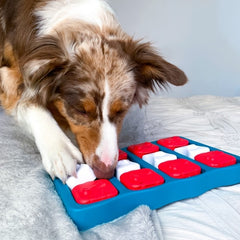 problem-solving skills. Choose age-appropriate and safe puzzle toys and supervise your puppy during playtime.
problem-solving skills. Choose age-appropriate and safe puzzle toys and supervise your puppy during playtime.
Playtime
Playtime is essential for your puppy's physical and emotional well-being. Play fetch, tug-of-war, and other games to keep your puppy happy and stimulated.
Crate Training and Housebreaking your Puppy
 Crate training and housebreaking are essential aspects of raising a happy and well-behaved puppy. By crate training and housebreaking your puppy, you can help them develop good habits and behaviors that will last a lifetime. Here are some tips on crate training and housebreaking:
Crate training and housebreaking are essential aspects of raising a happy and well-behaved puppy. By crate training and housebreaking your puppy, you can help them develop good habits and behaviors that will last a lifetime. Here are some tips on crate training and housebreaking:
Crate Training
Crate training can help your puppy feel safe and secure and prevent destructive behaviour. Choose an appropriately sized and comfortable crate and introduce it slowly and positively. Use positive reinforcement and gradually increase the duration and intensity of the crate training. Learn more here about Creating the Perfect Environment for Your Puppy’s First Night in Their Dog Bed or Crate
Housebreaking
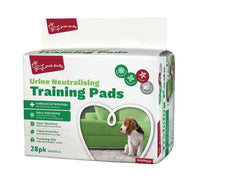 Housebreaking can take time and patience, but it's essential for preventing accidents and establishing good habits. Use positive reinforcement and consistency to teach your puppy where to go potty. Take your puppy outside frequently, and praise them when they go potty in the appropriate place.
Housebreaking can take time and patience, but it's essential for preventing accidents and establishing good habits. Use positive reinforcement and consistency to teach your puppy where to go potty. Take your puppy outside frequently, and praise them when they go potty in the appropriate place.
Learn more about toilet training here: Say Goodbye to Accidents: Expert Tips for Effective Puppy Toilet Training
Dealing with Common Behaviour Issues
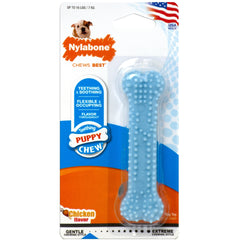 Puppies can exhibit several behaviour issues, such as biting, chewing, and barking. Understanding these behaviour issues and taking preventative measures can help you raise a well-behaved and happy puppy. Here are some tips on dealing with common behaviour issues:
Puppies can exhibit several behaviour issues, such as biting, chewing, and barking. Understanding these behaviour issues and taking preventative measures can help you raise a well-behaved and happy puppy. Here are some tips on dealing with common behaviour issues:
Biting and Chewing
Biting and chewing are natural behaviors for puppies, but it can be destructive and harmful if not managed. Provide your puppy with appropriate chew toys and discourage biting and chewing on inappropriate items. Use positive reinforcement and redirect your puppy's behaviour when necessary.
Barking
Barking is a natural behaviour for dogs, but excessive barking can be annoying and disruptive. Determine the cause of your puppy's barking and address it appropriately. Use positive reinforcement and redirect your puppy's behaviour when necessary.
Transitioning into Adult Doghood
As your puppy grows and matures, they will transition into adult doghood. During this time, your puppy's behaviour and personality may change, and they may require different care and attention. It's essential to continue providing your dog with proper nutrition, exercise, and socialisation to help them thrive in adulthood.
Raising a happy and healthy puppy requires patience, attention, and a willingness to learn. By understanding the different developmental phases of a puppy, socialising and training, providing proper nutrition and exercise, and addressing common health concerns and behaviour issues, you can help your puppy reach their full potential and ensure a lifetime of love and companionship. Remember to enjoy the journey and create lasting memories with your furry friend!
© weknowpets 2023


